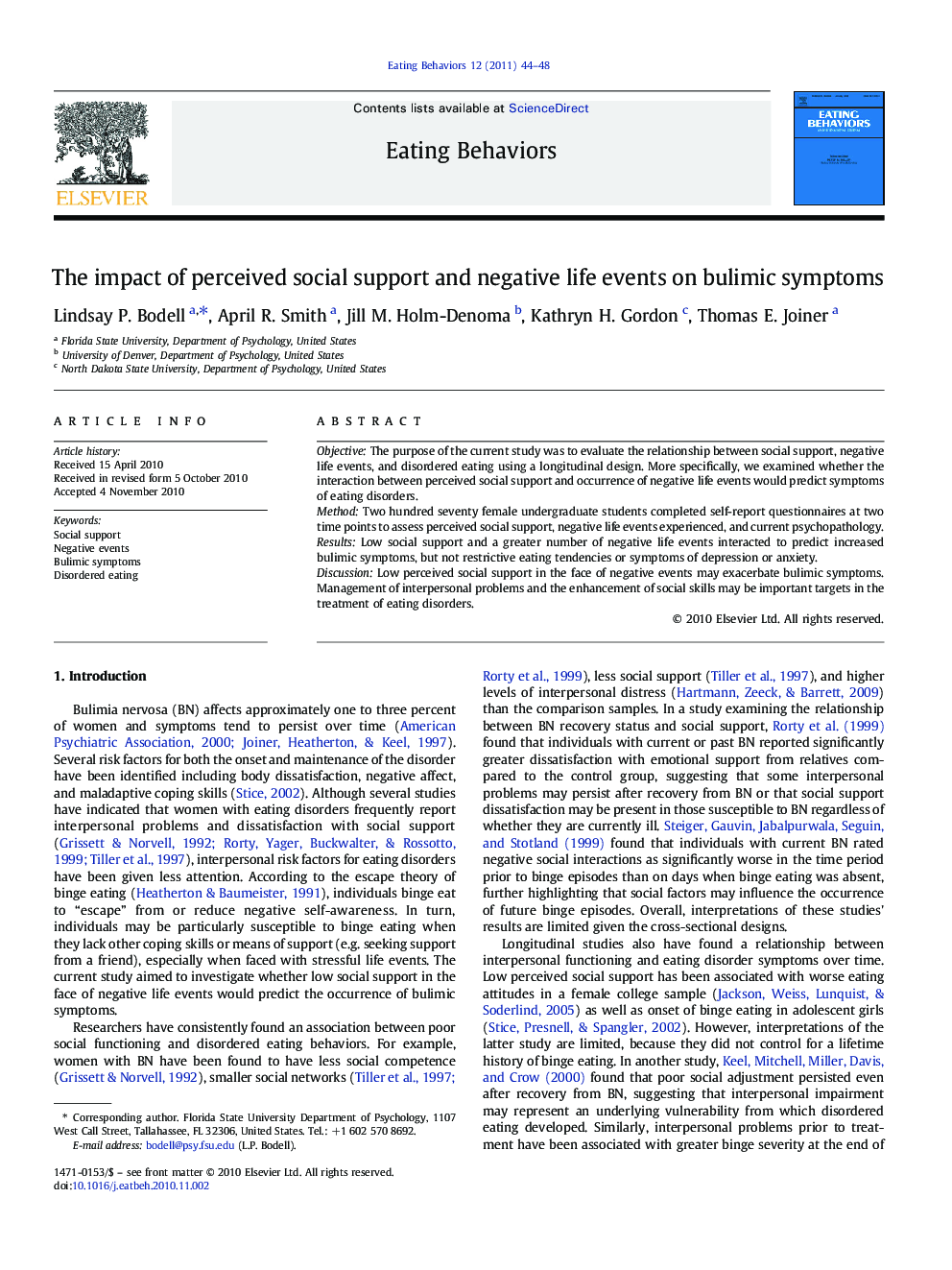| Article ID | Journal | Published Year | Pages | File Type |
|---|---|---|---|---|
| 906711 | Eating Behaviors | 2011 | 5 Pages |
ObjectiveThe purpose of the current study was to evaluate the relationship between social support, negative life events, and disordered eating using a longitudinal design. More specifically, we examined whether the interaction between perceived social support and occurrence of negative life events would predict symptoms of eating disorders.MethodTwo hundred seventy female undergraduate students completed self-report questionnaires at two time points to assess perceived social support, negative life events experienced, and current psychopathology.ResultsLow social support and a greater number of negative life events interacted to predict increased bulimic symptoms, but not restrictive eating tendencies or symptoms of depression or anxiety.DiscussionLow perceived social support in the face of negative events may exacerbate bulimic symptoms. Management of interpersonal problems and the enhancement of social skills may be important targets in the treatment of eating disorders.
Research Highlights► Low social support and negative life events interacted to predict bulimic symptoms. ► Low social support and negative life events did not predict restrictive eating. ► Low social support and negative life events did not predict anxiety symptoms. ► Low social support and negative life events did not predict depressive symptoms.
